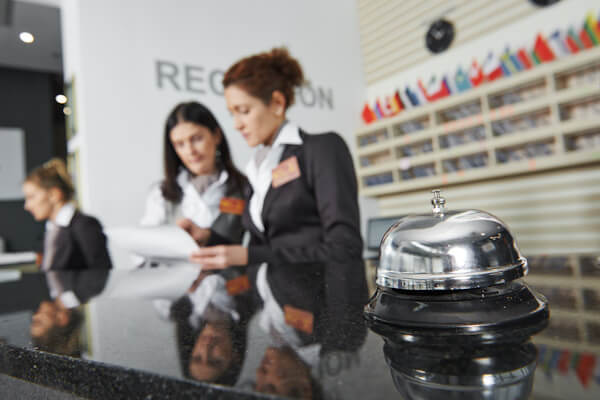Online, Offline: Keeping Your Reputation Intact
Leaders of the hospitality industry came together in Nashville last week at the STR Hotel Data Conference on August 4-6, covering a range of topics important to the hospitality community. One general theme of the conference was promoting guest choice and communication via the use of technology. Particularly relevant to this theme was the August 6th panel “Online, offline: keeping your reputation intact.” Management from Best Western, Real Hospitality, McKibbon Hotel Management, and Preferred Hotels and Resorts, and LBA Hospitality all represented on the panel, discussing the “Five Pillars of Reputation Management:”
- Respond ASAP
- Get personal
- Respond to the negative and the positive
- Make it part of the culture
- Be accountable
In discussing the above best practices, hoteliers agreed that responding to online reviews within 24 hours is important, but stressed personalized guest communication as the key factor to building a winning reputation.
Create an online relationship through authentic communication
The importance of authentic online communication, particularly when responding to online reviews, was the hot topic of the panel. Panelists unanimously agreed that hoteliers should avoid using canned management responses. VP of Member Services at Best Western International Michael Morton cautioned, “Don’t do canned responses. Keep responses as authentic as possible and make sure [guests] know you’re reading [their reviews].” Director of eCommerce LBA Hospitality Tim Johnson agreed that “authenticity is key, particularly with Millennials. Millennials trust people over brands. It’s important we respond to the person like a human, not a ‘brand voice.’ Having a one-on-one response creates both a public and a private forum to showcase how your hotels create personal guest relationships. Guests want the personal relationship, and moreover, want communication in their own language.
Just how do hotels create a level of authenticity? For some hotels, creating an authentic responses can mean hiring staff specialized in review response. David Chu, Corporate Vice President at Real Hospitality, noted, “We hired a 25 year-old to help with the language of our responses. Today, with all the [acronyms] in reviews like ‘OMG,’ sometimes a management response is too formal. We decided to be less formal and make it more personal.” While specialized staff can help create an appropriate tone, the panel advised against using outside PR agencies to handle reviews. Again, the response is about “acknowledging the customer’s point of view. The review response is not a good time to sell your product,” said Rob Cornell, SVP Business Development, Preferred Hotels and Resorts.
Other hoteliers encouraged the management response to really be a “staff response,” letting anyone on the staff respond to reviews. Morton says, “Some hotels are leery when it comes to [allowing] staff to respond. But I think it’s pretty cool to hear from the housekeeper of the hotel, or the bell staff, or the front desk manager. You create the relationship there. Yes, there can be grammatical errors and spelling errors but [training] can clean this up.” By engaging the staff, the hotel creates a culture of accountability across its staff.
In the vein of training and having the whole staff monitor and respond to reviews, Ben Golson, Director of e-Commerce at McKibbon Hospitality explained how at his hotels, the general managers empower their teams to responds to reviews. “One thing we love about [Revinate] is that it creates transparency and tracks who on the team is responding to reviews. This allows the team to respond as soon as possible and allows us to review what is being said.”
Golson went on to discuss how staff training at McKibbon properties includes responding to reviews. Each new staff member is given sample positive and negative online review scenarios and must present in front of their trainee group how they would respond.
Whether you centralize or decentralize review response depends on the hotel. Chu summarizes, “Independents that cater to a specific demographic have “more fun” with review response (as they do not have to be as brand conscious). But at the end of the day, authenticity is what brings guests closer to you and that’s what makes them come back.”
Offline personalization yields online success
Prior to the panel, featured speaker Michael Tchong engaged conference attendees discussing “uber trends” that are affecting and changing our world, the hospitality world included. The increasing use of smartphones, the rise of the modern “control freak,” and hotels using robots to augment their staff were among some of the discussed trends. With the increasing use of technology comes decreased or even eliminated human interaction, which is a foreign concept to the hospitality industry.
Among the panel, there was some debate about personalizing the guest experience through human touch or technology. Some panelists felt that personal connections are most important in driving guest satisfaction; others thought that personal touch-points could be eliminated through technology, for example, self-check-in.
When it comes to automating check-in, Morton considered it paramount for the modern business traveler. He polled the audience, “How many of you are business travelers?” Many hands went up. “How many of you, after a long flight, want to arrive at the hotel and just go straight to your room?” Almost all of the same hands went up. The group agreed, however, that same question directed at a leisure audience would get a different response. “Really it’s about giving the guest choices,” said Golson. Creating choice starts with knowing your guest. If your hotels cater to a certain traveler segment, make sure the choices offered meet expectations. Technology can enable a higher level of choice to guests, and in turn, deeper level of personalization.
The use of technology does not necessarily mean elimination of a high-touch environment. Hoteliers should be forward thinking to combine human touch with ahead-of-the-curve technology. When Chu was solicited for advice from a boutique hotel looking to create a “cozy” feel for its guests, he recommended, “remove the barrier created by the front desk and greet guests in the lobby and check guests in with a tablet. Offer them a hot cider on a cold day and a refreshing beverage on a hot day.”
Golson agreed, “There are tons of ways to use technology and be hospitable.” Similarly, nowadays offline behavior can go online to catapult your online reputation. Golson went on to tell the story of how one woman on his front desk staff truly went above and beyond her call of service. Due to social media, her actions did anything but go unnoticed. It all started when the front desk agent overhead a distraught guest lamenting about her lost luggage, which had her wedding dress in it. Sympathizing with the guest, the staff member drove home after her shift, found her own wedding dress, and then delivered it to the guests’ door along with a bottle of white wine. Even though the dress didn’t fit, it was about the gesture and personalization. The guest then wrote a review that got picked up on social media and became the talk of the town. The viral story aroused sympathy among readers and inspired the local wedding shop to give the guest a free wedding dress. Exceptional experiences will not go unnoticed.
Personalization drives reputation
Knowing your guests’ preferences and offering personalization – be it high or low touch – is the definition of true hospitality. Technology can help hoteliers achieve and benefit from a high level of personalization. Tracking your online presence and responding to online reviews is one of the first steps to using technology to provide a personal, authentic guest communication. With the right way to collect, analyze, and use your guest data, hotels can develop those valuable relationships with each guest that create lifelong customers.
To learn more about the specifics of how to engage with your guests on a personal level, join our free webinar, Email Marketing Best Practices for Hoteliers. CLICK HERE to register.
Related Posts

Insights that drive results
Subscribe now to get the latest content
This site is protected by reCAPTCHA and the Google Privacy Policy and Terms of Service apply. *Required fields.



